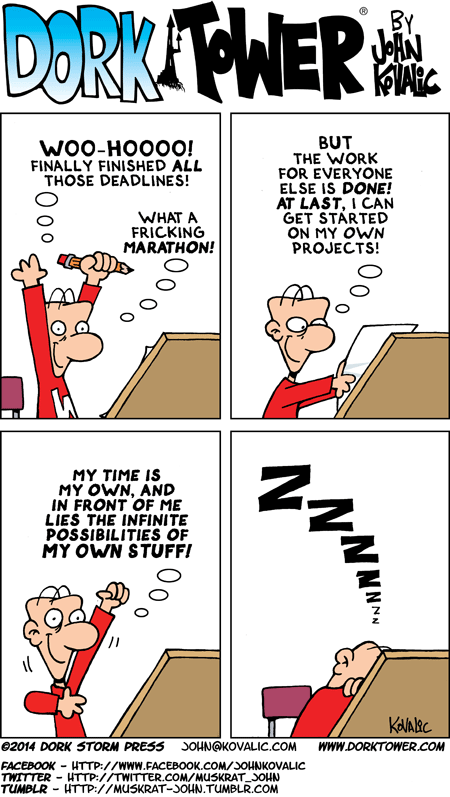Decouple helps you to organize your settings so that you can change parameters without having to redeploy your app.
It also makes easy for you to:
- store parameters on ini or .env files;
- define comprehensive default values;
- properly convert values to the correct data type;
- have only one configuration module to rule all your instances.
It was originally designed for Django, but became an independent generic tool for separating settings from code.
Why?
Web framework’s settings stores many different kinds of parameters:
- Locale and i18n;
- Middlewares and Installed Apps;
- Resource handles to the database, Memcached, and other backing services;
- Credentials to external services such as Amazon S3 or Twitter;
- Per-deploy values such as the canonical hostname for the instance.
The first 2 are project settings the last 3 are instance settings.
You should be able to change instance settings without redeploying your app.
Why not just use environment variables?
Envvars works, but since os.environ only returns strings, it’s tricky.
Let’s say you have an envvar DEBUG=False. If you run:
if os.environ['DEBUG']: print True else: print False
It will print True, because os.environ['DEBUG'] returns the string "False". Since it’s a non-empty string, it will be evaluated as True.
Decouple provides a solution that doesn’t look like a workaround: config('DEBUG', cast=bool).
Install
pip install python-decouple
Usage
On your settings.py.
- Import the config object:
from decouple import config
- Retrieve the configuration parameters:
SECRET_KEY = config('SECRET_KEY') DEBUG = config('DEBUG', default=False, cast=bool) EMAIL_HOST = config('EMAIL_HOST', default='localhost') EMAIL_PORT = config('EMAIL_PORT', default=25, cast=int)
Where the settings data are stored?
Decouple supports both .ini and .env files.
Ini file
Simply create a settings.ini next to your configuration module in the form:
[settings] DEBUG=True TEMPLATE_DEBUG=%(DEBUG)s SECRET_KEY=ARANDOMSECRETKEY DATABASE_URL=mysql://myuser:mypassword@myhost/mydatabase PERCENTILE=90%%
Note: Since ConfigParser supports string interpolation, to represent the character % you need to escape it as %%.
Env file
Simply create a .env text file on your repository’s root directory in the form:
DEBUG=True TEMPLATE_DEBUG=True SECRET_KEY=ARANDOMSECRETKEY DATABASE_URL=mysql://myuser:mypassword@myhost/mydatabase PERCENTILE=90%
Example: How do I use it with Django?
Given that I have a .env file at my repository root directory, here is a snippet of my settings.py.
I also recommend using unipath and dj-datatabase-url.
# coding: utf-8 from decouple import config from unipath import Path from dj_database_url import parse as db_url BASE_DIR = Path(__file__).parent DEBUG = config('DEBUG', default=False, cast=bool) TEMPLATE_DEBUG = DEBUG DATABASES = { 'default': config( 'DATABASE_URL', default='sqlite:///' + BASE_DIR.child('db.sqlite3'), cast=db_url ) } TIME_ZONE = 'America/Sao_Paulo' USE_L10N = True USE_TZ = True SECRET_KEY = config('SECRET_KEY') EMAIL_HOST = config('EMAIL_HOST', default='localhost') EMAIL_PORT = config('EMAIL_PORT', default=25, cast=int) EMAIL_HOST_PASSWORD = config('EMAIL_HOST_PASSWORD', default='') EMAIL_HOST_USER = config('EMAIL_HOST_USER', default='') EMAIL_USE_TLS = config('EMAIL_USE_TLS', default=False, cast=bool) # ...
Atention with undefined parameters
On the above example, all configuration parameters except SECRET_KEY = config('SECRET_KEY') have a default value to fallback if it does not exist on the .env file.
If SECRET_KEY is not present on the .env, decouple will raise an UndefinedValueError.
This fail fast policy helps you avoid chasing misbehaviors when you eventually forget a parameter.
How it works?
Decouple is made of 5 classes:
- Config
Coordinates all the configuration retrieval.
- RepositoryIni
Can read values from ini files.
- RepositoryEnv
Can read .env files and when a parameter does not exist there,
it tries to find it on os.environ.This process does not change nor add any environment variables.
- RepositoryShell
Can only read values from os.environ.
- AutoConfig
Detects which configuration repository you’re using.
It recursively searches up your configuration module path looking for a
settings.ini or a .env file.
The config object is an instance of AutoConfig to improve decouple‘s usage.
License
The MIT License (MIT)
Copyright (c) 2013 Henrique Bastos <henrique at bastos dot net>
Permission is hereby granted, free of charge, to any person obtaining a copy of this software and associated documentation files (the “Software”), to deal in the Software without restriction, including without limitation the rights to use, copy, modify, merge, publish, distribute, sublicense, and/or sell copies of the Software, and to permit persons to whom the Software is furnished to do so, subject to the following conditions:
The above copyright notice and this permission notice shall be included in all copies or substantial portions of the Software.
THE SOFTWARE IS PROVIDED “AS IS”, WITHOUT WARRANTY OF ANY KIND, EXPRESS OR IMPLIED, INCLUDING BUT NOT LIMITED TO THE WARRANTIES OF MERCHANTABILITY, FITNESS FOR A PARTICULAR PURPOSE AND NONINFRINGEMENT. IN NO EVENT SHALL THE AUTHORS OR COPYRIGHT HOLDERS BE LIABLE FOR ANY CLAIM, DAMAGES OR OTHER LIABILITY, WHETHER IN AN ACTION OF CONTRACT, TORT OR OTHERWISE, ARISING FROM, OUT OF OR IN CONNECTION WITH THE SOFTWARE OR THE USE OR OTHER DEALINGS IN THE SOFTWARE.










